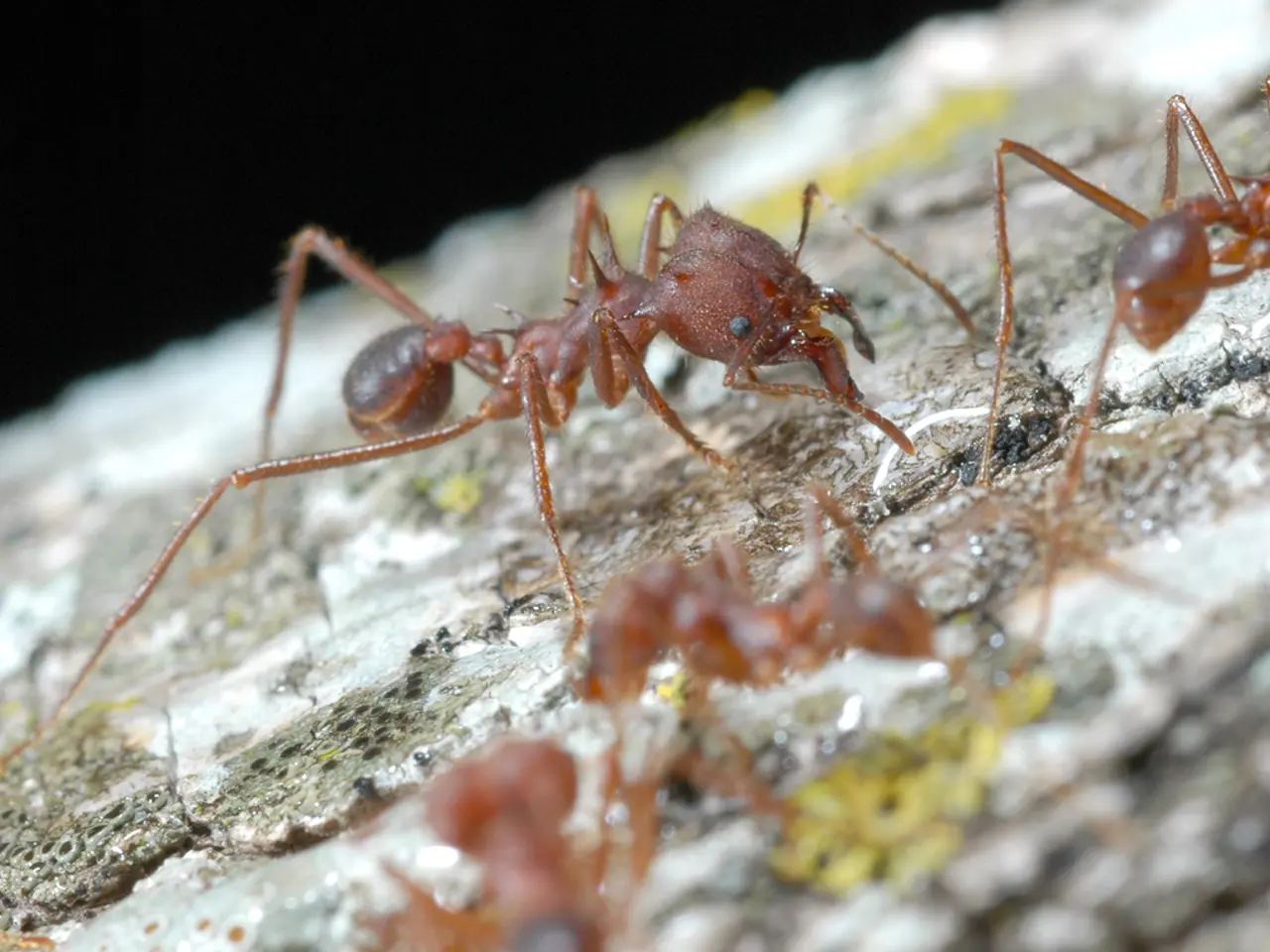Natural antibiotics utilized by ants for treating infected wounds discovered
In the vast and intricate web of life, some of the most fascinating discoveries can be found in the smallest of creatures. Take, for instance, the African Matabele ants, whose behavior holds significant implications for the fields of biology and medicine.
These ants have been observed using antibacterial substances in their natural environment to aid in wound care. The exact nature of these substances is a subject of scientific curiosity, but it is believed that they are sourced from their immediate environment and produced by symbiotic bacteria, such as Pseudonocardia species, on their bodies. These bacteria produce antibiotics to protect their fungal gardens from pathogens, providing the ants with natural antibiotics.
This adaptive behavior is a testament to the intelligence found in the insect world and may provide insights into the discovery of new antibiotic substances beneficial for human medicine. The use of these antibiotics not only aids in individual recovery but also maintains the overall health of the colony.
The cooperative nature of Matabele ants extends beyond their use of antibiotics. They are known to recognize and treat wounds on their colony members, a behavior that underscores the complexity and sophistication of insect societies. This highly developed social structure, and the evolutionary adaptation of using natural antibiotics for wound treatment, demonstrates the development of collective strategies for overcoming challenges.
The behavior of Matabele ants using natural antibiotics underscores the importance of biodiversity and the interconnectedness of all life forms. As we delve deeper into understanding this phenomenon, we uncover more about the intricate web of life and the myriad ways in which different species survive and thrive.
Preserving biodiversity is crucial for the continued exploration and understanding of natural phenomena like the use of antibiotics by Matabele ants. As a content specialist with a passion for writing about health, wellness, travel, animals, and nature, I am reminded of the potential lessons and discoveries that can be gleaned from the natural world.
In the end, the story of the Matabele ants serves as a reminder of the wonders that lie hidden in the smallest of creatures, and the importance of preserving biodiversity to continue uncovering these secrets.
Andrew Alpin Content Specialist
- The intricate behavior of African Matabele ants, which involves the use of antibacterial substances for wound care, has significant implications for biology, medicine, and health-and-wellness.
- These ants' adaptive ability to source antibiotics from symbiotic bacteria like Pseudonocardia species and use them for their own benefit could lead to the discovery of new antibiotic substances beneficial for human medicine.
- The evolution of Matabele ants' social structure, allowing them to recognize and treat wounds on colony members, showcases the complexities of insect societies and the importance of biodiversity in science.
- TheMatabele ants' collective strategies for overcoming challenges, such as their use of natural antibiotics, highlight the interconnectedness of all life forms, which is essential in environmental-science and conservation.
- Andrew Alpin, a content specialist with a passion for writing about various topics, including travel, animals, nature, and health, stresses the importance of preserving biodiversity to continue discovering wonders hidden in the smallest of creatures, as demonstrated by the Matabele ants.




